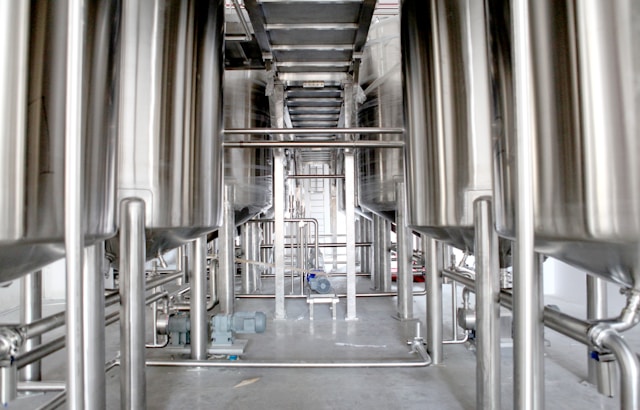Introduction
In an era where sustainability has become a critical concern across all sectors, integrating environmentally friendly practices within Industrial Automation is not just a moral duty but a business imperative. This approach not only helps in reducing the environmental impact of manufacturing processes but also enhances efficiency and brand reputation.
In this blog, we will explore how industries can embed sustainable practices into their automation strategies, driving both ecological and economic benefits.
Understanding the Importance of Sustainable Industrial Automation
Industrial automation, characterized by the use of robotics and computer systems for managing production processes, stands at the forefront of modern manufacturing. However, the environmental footprint of these systems is significant, often involving high energy consumption, substantial waste generation, and considerable resource use. By integrating sustainable practices, companies can mitigate these impacts while improving operational efficiency and long-term viability.
Strategies for Sustainable Automation
Energy-Efficient Technologies
Investing in energy-efficient technologies is a fundamental step. This includes the use of servo motors, variable frequency drives (VFDs), and energy-efficient robots that consume less power and reduce operational costs. Additionally, implementing advanced control systems that optimize energy use by shutting down equipment during idle periods can significantly cut energy consumption.
Renewable Energy Integration
Integrating renewable energy sources, such as solar or wind power, into automation systems can drastically reduce the reliance on non-renewable resources. For instance, installing solar panels to power a part of the production line not only reduces carbon emissions but also ensures a more sustainable energy supply.
Waste Reduction through Precision
Automation enables high precision in manufacturing processes, which significantly reduces material wastage. Advanced sensors and AI algorithms can predict and adjust processes in real time, ensuring materials are used optimally. Moreover, automating recycling processes within the production line can promote the reuse of materials, thus supporting circular economy principles.
Lifecycle Assessments
Conducting lifecycle assessments of automation equipment can help in understanding and minimizing the environmental impacts associated with their production, operation, and disposal. Companies should choose automation solutions that offer ease of recycling and minimal use of hazardous materials.
Smart Manufacturing Systems
The adoption of smart manufacturing systems, which utilize data and AI to optimize production, is crucial. These systems can monitor and adjust the energy usage and efficiency of machines, thereby not only saving energy but also reducing emissions and waste.
Case Studies: Success Stories of Sustainable Industrial Automation
Several leading companies have successfully integrated sustainable practices into their automation processes. For instance, a prominent automotive manufacturer has implemented a fully automated painting system that reduces paint waste by 25% and decreases energy consumption by 15%. Another example is a tech giant that uses AI-driven analytics to optimize its data center operations, significantly reducing energy usage.
Challenges and Considerations
While the benefits are clear, the transition to sustainable industrial automation presents several challenges. The initial cost of implementing energy-efficient technologies or renewable energy systems can be high. Moreover, there is a need for skilled personnel to manage and maintain these advanced systems. Companies must also navigate regulatory and standards compliance, which can vary widely by region.
Conclusion
Integrating sustainable practices into industrial automation, including the use of energy-efficient technologies such as advanced Electrical control panels, is not just beneficial but necessary for modern industries. It requires a proactive approach, involving investment in renewable energy, waste reduction systems, and smart manufacturing. By adopting these practices, companies can not only reduce their environmental impact but also enhance their operational efficiency and economic performance.
By focusing on sustainability, industries not only contribute to environmental conservation but also build resilience and competitiveness in a rapidly evolving global market. As technology advances, the potential for sustainable practices in industrial automation will continue to expand, offering new opportunities for innovation and improvement.

